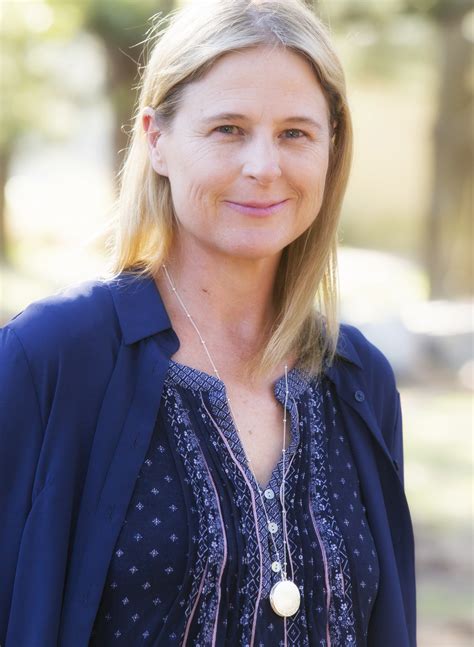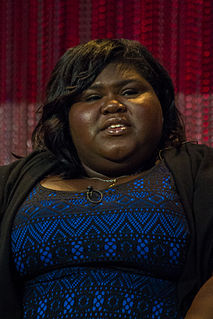A Quote by Brian Evenson
Like a cross between Paul Auster's The Book of Illusions and Janice Lee's Damnation, The Absolution of Roberto Acestes Laing is at once smart and slyly unsettling. It is expert at creating a quietly building sense of dread while claiming to do something as straightforward as describe lost films—like those conversations you have in which you realize only too late that what you actually talking about and what you think you are talking about are not the same thing at all. With Rombes, Two Dollar Radio deftly demonstrates why it is rapidly becoming the go-to press for innovative fiction.
Quote Topics
About
Absolution
Actually
Becoming
Between
Book
Building
Claiming
Conversations
Creating
Cross
Damnation
Describe
Dollar
Dread
Expert
Fiction
Films
Go
Illusions
Innovative
Late
Lee
Like
Lost
Once
Only
Paul
Press
Quietly
Radio
Rapidly
Realize
Same
Same Thing
Sense
Smart
Something
Straightforward
Talking
Thing
Think
Those
Too
Too Late
Two
Unsettling
Which
While
Why
Related Quotes
Couture has a lot of issues today. Here in Paris there are oddly so few houses showing. And I'm not talking about the style. I'm talking about the sense of couture and these young actresses that you were talking about - they want long dresses that are not always the most innovative or the most interesting. So it's a bit lost.
I want my music to be something that people use in order to access parts of themselves. So in that sense, every piece I write is about all emotions at once, about the lines in between. It's never only about one thing or another. It's emotionally getting at those things that we can't really describe - things for which we don't have labels. So yes, it's about something, and it has a use. It's neither about nothing nor about something concrete - it's about what you bring to it as a listener.
I hate those TV shows where characters talk about one thing, such as their patient on the operation table (let's say they're a doctor), then you realize they're actually talking about actually talking about themselves. The patient's open-heart surgery is nothing compared to their own messed-up heart or whatever. It's selfish. And means they're not concentrating, which is medical negligence.
When I say a girl like me, I bet you think I'm just talking about being fat. How dare you fat-shame me? You think I'm talking about being black? Racist. What makes you think I'm not talking about being smart? What? You don't think a fat, black girl can be smart or something? Fat-shaming racists like you make me sick.
What's actually amazing is that, after a couple of years of living with characters and writing characters and talking about characters, as we sit in the writers room and break episodes, it strikes you, every once in awhile, that you're talking about a character that's played by the same actor, who you've been talking about forever. We talk about a character dying, so you get emotional, and then you realize, "Oh, but wait, that actor is still on the show."
Talking about winning and losing is like if you're talking about two armies fighting on two territories, which is not the case. Those [terrorists] are gangs, coming from abroad, infiltrate inhabited areas, kill the people, take their houses, and shoot at the army. The army cannot do the same, and the army doesn't exist everywhere.
I feel like when we talk about post-apocalyptic themes that's what we're really talking about. We're always returning to this sense of being alone in a strange new place where all is bleak and all is lost. And it is this sense of isolation that permeates the whole album. I wanted to go into the balance between fear and transcendence.
I think that the work that's left to be done - and I see the end in sight at this point - is to just let go and stop talking about it. It's definitely 'stop talking about the whole size thing.' I don't go to my girlfriend's house and say, 'Hey, I'm your big friend, let's talk about big things.' It's not a topic of conversation within my friend group - I'm ready for society, Hollywood, the press, magazines, everyone, to just catch up and say, 'These women are just like the women we've been using for so long. Let's just throw them into the mix and stop talking about it.'
Pearl Jam bassist Jeff Ament and I get excited talking about making record artwork or working with T-shirt designs. The least exciting part for us is talking about the finances; it's like going to the dentist for us. But we at least try to do it in a creative way and put our stamp on it. I can only think that we create something that's worth the value of that dollar.
I wrote an essay too, and mine started something like, "When I was asked to contribute to this book, I said, 'I could do a piece on [Larry] Kramer as a pain in the ass, but I suppose you have too many of those, as it is.'" And Sarah's began something like, "When I read about America's angriest AIDS activist, I can't believe they are talking about my sweet Uncle Larry."
She [Hillary Clinton] knows the people well. I think there is - you know, also talking about breaking down barriers and talking about that, whether we`re talking about that in economic terms. I mean, she`s the only person who has been out there talking about white privilege and talking about sort of the intersectionality of some of these issues.






































